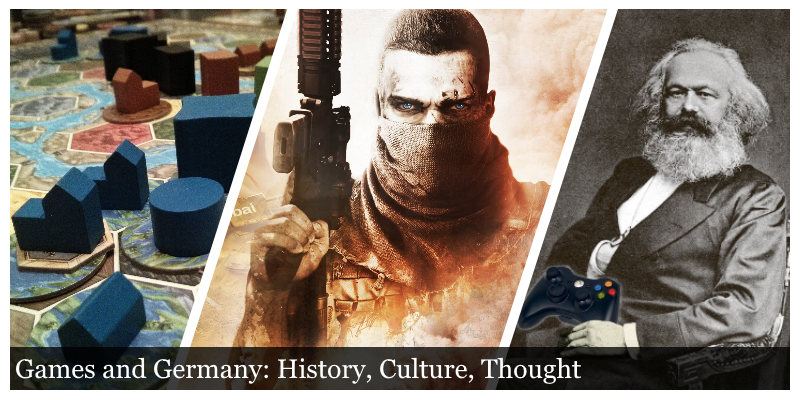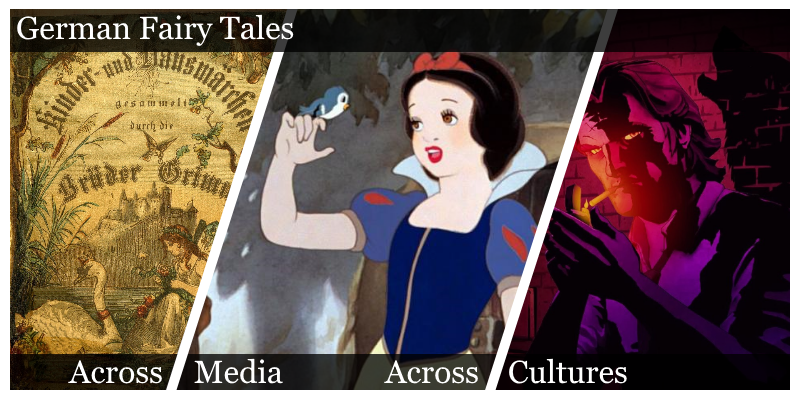Derek has taught as an instructor of record for multiple German-language courses, and has served as a Teaching Assistant, giving guest lectures and leading discussion sections, for courses on German Fairy Tales, Cinema and Media Studies, and European Studies.
Based on his experiences as a teacher and a researcher, he has also designed several syllabi which draw on his background in German Studies, Media Studies, Game Studies, and Digital Humanities, which can be seen below. If you'd like to see the full syllabus for any of the courses below, send Derek a request at derek.t.price@vanderbilt.edu

Course Title: Games and Germany: History, Culture, Thought
Course Description: From the 19th century Prussian Kriegsspiel (wargame), to the proliferation of the “Eurogame” boardgame genre, to digital management and simulation games in the 21st century, games and playful media have played important roles in German culture and history for centuries. They have often served multiple, overlapping purposes as aesthetic objects, methods of training and thinking, entertainment products, and objects for negotiating ideas of culture and nationality. Over the years, Germany has developed a unique culture of games and play shaped by domestic and international game industries, making the culture of games an important site of transnational economic and cultural exchange. Additionally, German culture, history, and thought often appear in games produced globally, making games an important medium for remembering, negotiating, and reinterpreting Germany’s identity in the past and present.
This course will introduce learners to the history and culture of games in Germany. Participants will learn how to analyze games as aesthetic and cultural objects using multiple interpretive and theoretical frames which consider how the form, rules, and subject matter of games intersect with questions of politics, identity, and culture. We will also explore how games can be brought into conversation with other media about German history and thought. Participants will have the opportunity to develop critical and creative literacies in textual, audio, visual, and playful forms, and will demonstrate their learning through blog posts, in-class discussions, essays, and a final, group-authored, multi-media project.

Course Title: German Fairy Tales: Across Media, Across Cultures
Course Description: More than 200 years later, Jacob and Wilhelm Grimms’ collections of fairy tales, first published in 1812 with the title Kinder- und Hausmärchen (Children’s and Household Tales), continue to influence culture and art and fuel the imaginations of adults and children alike. From literary fairy tales in the 19th and 20th centuries to Disney’s animated films to comics and computer games, the legacy of German fairy tales is evident across time, cultures, and media. But where did the Grimms’ fairy tales come from, how did they become popular, and why have the endured across time? In this course, we will uncover the history behind stories like “Little Red Riding Hood” and “Cinderella” to see how the Grimms’ collected fairy tales, how their tales were circulated and used, how they influenced later fairy-tale media, and how different scholars have understood fairy tales in different contexts. The course will cover texts including fairy tales from the Grimms’ collections, 20th century feminist and post-modern re-writings and re-tellings, film adaptations from the US and former East Germany, and contemporary adaptations of fairy tales in comics and computer games. Students will develop critical and creative literacies in textual, audio, visual, and playful forms, and will demonstrate their learning through online blog posts, in-class discussion, essays, and a final group-authored, multi-media project.